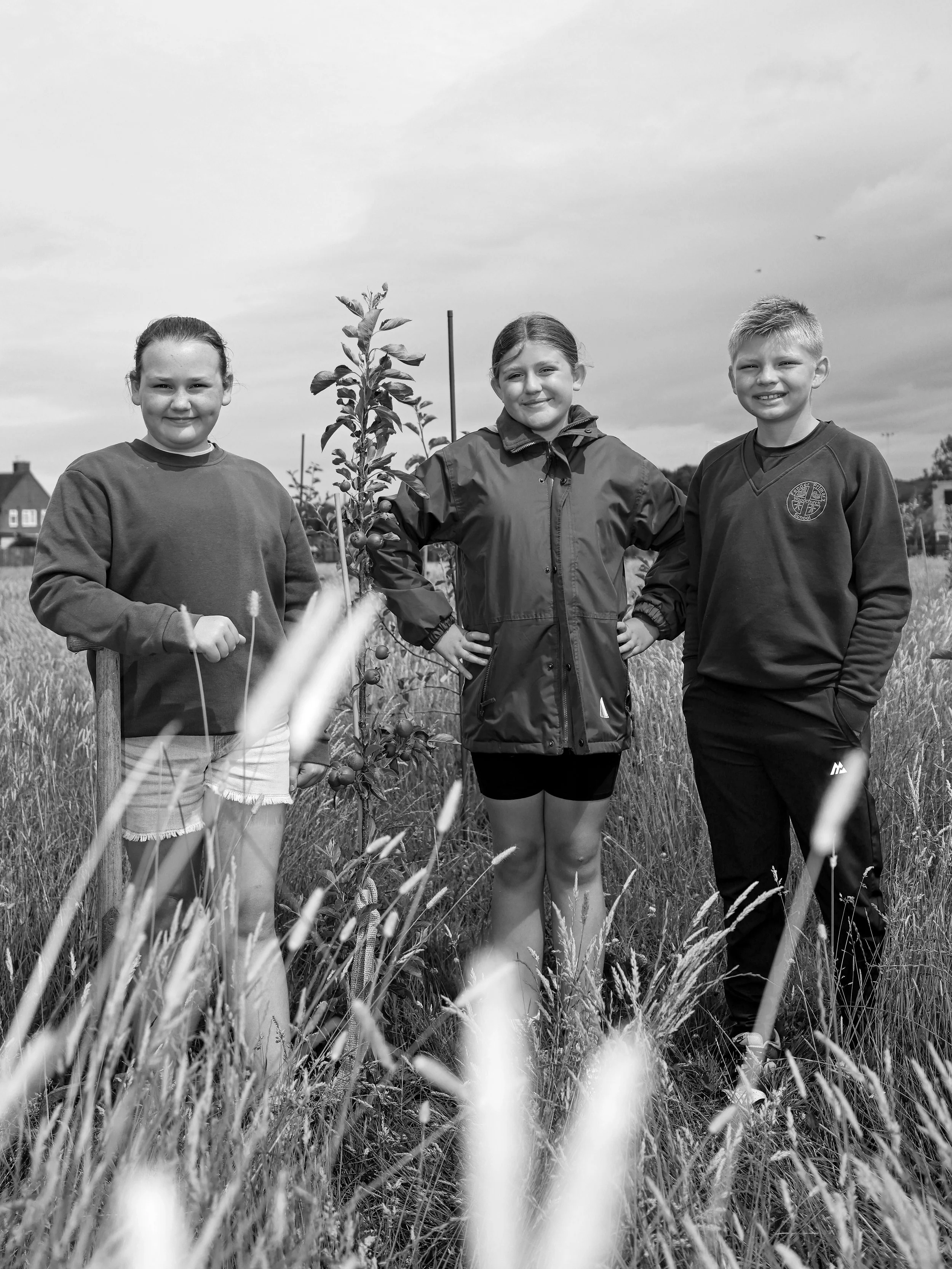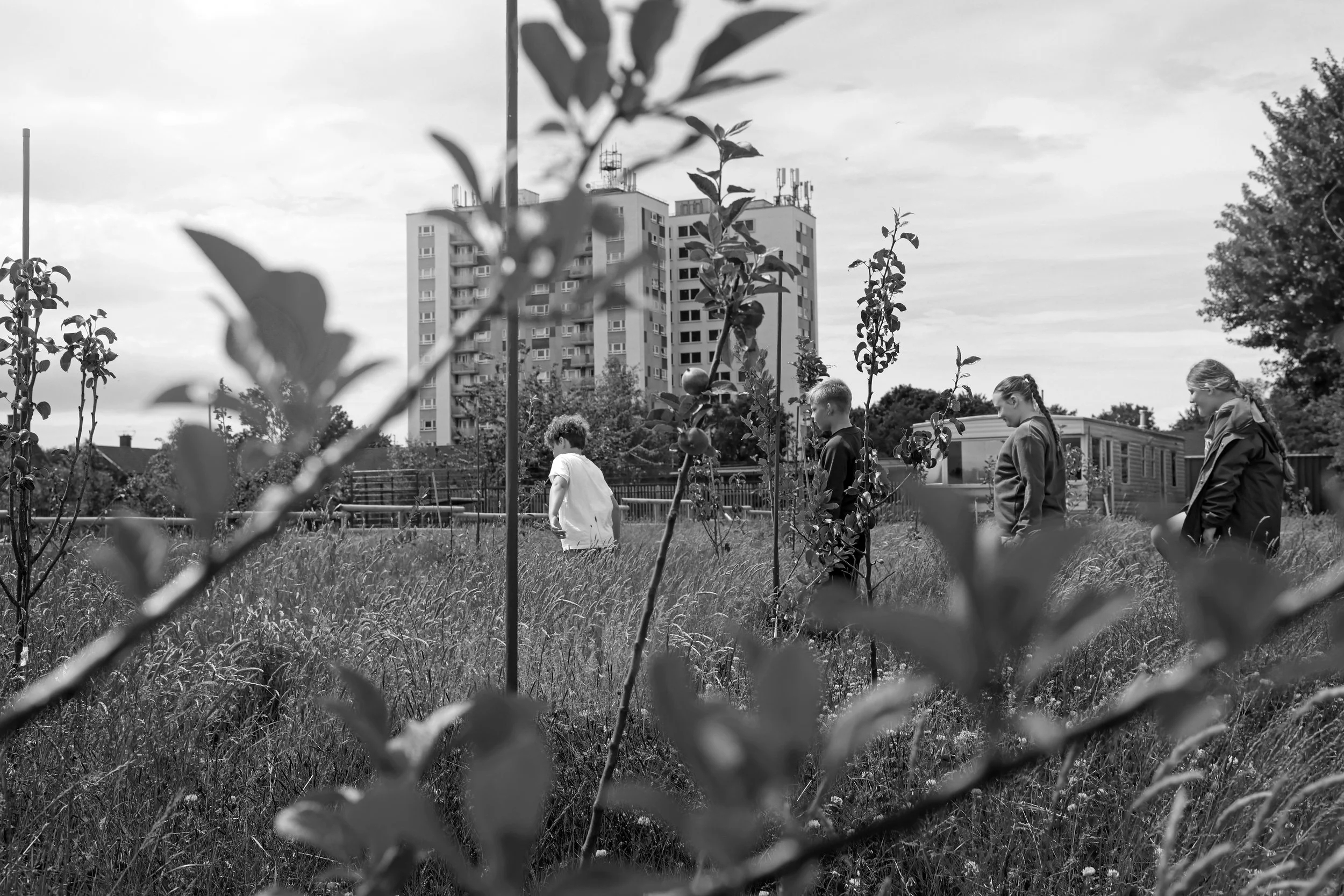From wasteland to wonder: the green transformation of Fender Primary School
How a Birkenhead school is rewilding its grounds — and its children’s futures — one tree at a time
Nestled in the heart of a council estate in Birkenhead, Fender Primary School might, at first glance, appear unremarkable, but step through its gates and into the grounds, and you’ll find a treasure trove of opportunity, a living testament to what happens when ambition meets nature. Surrounded by families who work hard and care deeply about giving their children the best start in life, Fender is part of an extraordinary transformation — one rooted quite literally in the soil beneath its feet.
Until recently, the large expanse of land behind the school was a soggy, unusable bog — a place where PE lessons couldn’t be held and where little grew except frustration. It was a kind of forgotten space, a muddy patch with nothing to offer the children who so desperately needed somewhere to play, explore, and connect with the world outside. With the nearest park two to three miles away and limited places for outdoor activity, the children at Fender were missing out on the kind of everyday experiences many others take for granted: running barefoot through grass, watching tadpoles dart in ponds, and getting their hands dirty planting seeds. But things have changed — radically.
Thanks to a series of successful grant applications and support from various partners, Fender Primary School has been able to plant over 3,000 native trees across its grounds. The boggy land is now becoming a rich and diverse outdoor learning environment: wildflower meadows buzzing with pollinators, orchards brimming with hundreds of fruit trees (some of which, amusingly, have already been raided by crafty local foxes), and a vast pond teeming with new life. These spaces are not designed to be overly manicured or sterile — they are being built to be wild, immersive, and exciting. They offer endless opportunities for children to discover, investigate, and just be.
At the helm of this transformation is headteacher Charles Hewitt, a man driven by a simple yet profound belief: that every child should have access to green space. “It should be a basic human right,” he says. “Especially in areas like ours, where green spaces are few and far between. These children deserve to grow up with a connection to the natural world. It’s about equity.” The school’s estate is now a source of pride — not only for the pupils and staff but for the entire community. Parents, carers, and residents have been invited to take part in planting days, where a sense of ownership and belonging has been tangible.
The impact on the children is already being felt in powerful ways. For those facing mental health challenges or emotional-based school avoidance, the school’s “walk and talk” initiative has been transformative. Every day, children who are supported by mental health services start their morning walking outdoors with a staff member — breathing in fresh air, connecting, and preparing themselves for the day ahead. It’s a gentle, therapeutic practice that provides structure and comfort. Forest school activities have similarly become a lifeline for pupils who struggle with the rigidity of the traditional classroom.
Every child in the school — all 260 of them — has planted their own tree. It’s a rite of passage, a contribution to a legacy that will grow alongside them. Some students have even been appointed as Tree Ambassadors, a special role recognising their commitment to caring for the new green spaces. These young environmental stewards help monitor the health of the trees and share knowledge with their peers. There are also plans for annual biodiversity surveys, mental health studies linked to nature exposure, and even joint projects with local secondary schools to deepen these connections.
Fender is approaching capacity in terms of classroom sizes, but space outdoors is infinite. Learning now flows beyond the walls — literally. Children read high-quality, aspirational texts under the trees. Oracy and spoken language are developed in the open air. Pupils with SEND thrive in spaces where movement, sensory experience, and self-expression are supported and encouraged. The freedom to choose where and how learning happens is revolutionising the school’s curriculum. Staff are even beginning to write a bespoke curriculum from scratch, rooted in real experiences and hands-on exploration.
The transformation also hasn’t been without its humorous moments. During the early planting sessions, the school’s SENCO — who has a deep fear of insects — bravely joined in but managed to put her wellies on the wrong feet in her nervous haste. In another unforgettable moment, a group of Year 6 girls spontaneously formed a circle around their freshly planted saplings and began singing a hauntingly beautiful chant, like they understood, instinctively, that they were doing something sacred. Nature has begun to reweave itself into the lives of Fender’s pupils. Screens are being swapped for saplings. Children who once sat on the edge of learning are finding their place among the roots and wildflowers. What began as a practical response to a neglected piece of land has become a holistic movement — one that supports mental health, builds resilience, fosters community pride, and sows the seeds of environmental stewardship.
Fender Primary School is more than a school now, it is part of a bigger ecological movement, a beacon of hope and imagination. It proves that you don’t need vast funding or a rural setting to make nature a central part of childhood. What you need is vision, commitment, and a belief in every child’s right to grow — not just academically, but emotionally, spiritually, and ecologically. The children of Fender are not just learning about nature — they are becoming part of it. As their trees grow taller year by year, so too will their confidence, their curiosity, and their capacity to shape a better, greener world.

